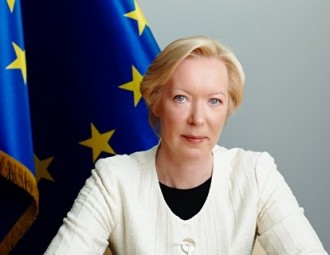Maira Mora sent an answer to Elena Tonkacheva and Ales Bialiatski

In her letter addressed to human fighters head of the EU Delegation to Belarus ensured that the release of political prisoners is the pre-condition for normalization of EU-Belarus relations.
In her response Maira Mora thanked the human rights defendants for the earlier sent letter, where the issue of the worsening state of the political prisoner Mikalai Statkevich was described.
“Thanks to cooperation with human rights organizations like Lawtrend and Viasna, as well as frequent contacts with families of political prisoners, the EU Delegation is well aware of the pressure exerted on Mr. Statkevich, and constantly raises this issue in all contacts with Belarusian authorities”, - is said in the letter of the head of the EU Delegation.
It also informs that the EU Delegation’s attempt to monitor the trial of Mr. Statkevich on 4 May 2015 was unsuccessful, despite our efforts. Following his sentencing, the European External Action Service Spokesperson issued a statement, which is attached below.
“We regret to inform you, - is noted in the letter from Maira Mora, - that we have received negative replies to all our requests to visit political prisoners in captivity, but have continued to advise the authorities that visits of, for example, Red Cross representatives, would be beneficial.
Taking this opportunity we wish to stress that the release of political prisoners remains a pre-condition for normalization of relations between the European Union and Belarus.”
Let us recall that on 16 April 2015 the Center for Legal Transformation “Lawtrend” and the Human Rights Center “Viasna” sent Maira Mora, the Head of the EU Delegation to Belarus, an urgent address in relation to the enhanced pressure against Mikalai Statkevich.
In their letter human rights defendants strongly asked the EU Delegation and the UN Delegation to Belarus to urgently visit Mikalai Statkevich for assessing the conditions of his maintenance and to control the information about the facts of pressure in relation to him.
Besides, the leaders of the human rights organizations asked to provide the presence of the EU representative and the UN representative in Belarus at Mikalai Statkevich’s trial for independent monitoring of his court trial.
-
03.01
-
07.10
-
22.09
-
17.08
-
12.08
-
30.09








































